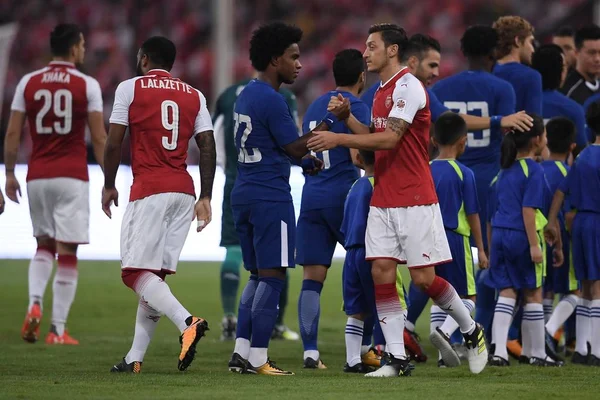Lawrence Wong Leads PAP to Strong Mandate Amid Global Trade Uncertainty

Singapore’s People’s Action Party (PAP) has once again emerged victorious in the nation’s 14th general election, securing 87 out of 97 parliamentary seats. The resounding win marks the beginning of Lawrence Wong’s tenure as prime minister following his official appointment in May 2024. This election, held during a period of rising global economic instability, saw a voter turnout of 92.47%—the lowest on record despite compulsory voting for citizens over 21.
The election results were determined for 92 seats, as five were awarded to the PAP uncontested during Nomination Day on April 23. The main opposition, the Workers' Party, retained its 10 seats, maintaining its presence in Parliament. The dominant PAP further strengthened its position by increasing its share of the popular vote to 65.57%, up from 61.2% in the 2020 election.
This marked the first general election led by Wong, who also serves as finance minister. Key campaign issues included rising living costs, employment opportunities, and overall economic growth. Wong became the first incoming PAP prime minister to increase the party’s vote share in his debut election—breaking a trend seen in previous leadership transitions in 1990 and 2004, when vote shares fell under new leaders.
Wong took over the role of prime minister from Lee Hsien Loong, who now serves as Senior Minister in his cabinet. The PAP has governed Singapore since 1959, guiding the city-state through independence in 1965 and subsequent decades of transformation. Following the landslide win, Wong expressed his gratitude, stating that the outcome was a clear signal of Singaporeans’ trust and a firm mandate to govern amid uncertain global conditions.
International reactions were swift and positive. The U.S. State Department extended congratulations to Wong, expressing readiness to deepen collaboration on economic growth and defense. European Commission President Ursula von der Leyen echoed similar sentiments, emphasizing the strength of EU-Singapore cooperation in areas like trade, security, and innovation.
However, Wong’s victory comes at a time of mounting economic headwinds. In April, Singapore revised its GDP forecast down to between 0% and 2%, following two rounds of monetary easing by the Monetary Authority of Singapore. The country's first-quarter GDP growth came in at 3.8%, falling short of expectations. Wong previously warned that Singapore could face a recession in 2025.
In response to these risks, a task force led by Deputy Prime Minister Gan Kim Yong was launched to help businesses and workers adapt to shifting global trade dynamics. This includes addressing repercussions from new U.S. tariffs, such as those targeting pharmaceutical exports and high-tech sectors. Singapore is actively engaging Washington to seek clarity and concessions.
Despite its long-standing free trade agreement with the U.S. since 2004 and a trade deficit with the country, Singapore was not spared from the 10% tariff imposed by the Trump administration in April. According to Gan, U.S. Commerce Secretary Howard Lutnick described the tariff as a broad policy framework, indicating little room for negotiation. This economic backdrop underscores the significance of PAP’s renewed mandate and Wong’s steady leadership.
What's Your Reaction?















:format(webp)/cdn.vox-cdn.com/uploads/chorus_image/image/70136881/1347078605.0.jpg)





